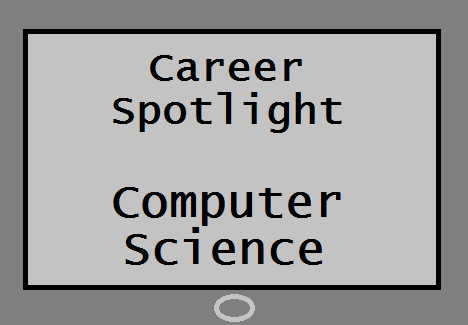Career Spotlight: Computer Science
Sep 25,2015
With technology on the rise, it’s no wonder computer science is a fast-growing and high-paying field. Every day, new computer programs are being created, and others are being improved to meet the needs of users.
Computer scientists play a role in both creating and improving programs and software. Computer scientists are analyzers, critical thinkers and problem solvers who can keep up with technological trends and design innovative products for their employers.
If you’re interested in pursuing a career in computer science, here are a few things you need to do now to prepare for your desired career.
1. Earn your degree.
From computer science history to the ins-and-outs of programming and software engineering to problem solving, computer scientists must be well-versed in a variety of topics before entering the workforce.
Because of this, most computer scientists hold a bachelor's degree in computer science or a related program, and many even hold masters or doctorate degrees.
Many colleges and universities offer four-year programs in computer science or a related field, and master’s degree programs are also readily available for those interested in furthering their educations and expanding their job opportunities.
2. Develop an interest in technology.
Computer scientists must work with technology every day, so many come into the field with at least a slight interest in the function and development of technology.
One obvious interest of computer scientists is computers. From the overall design of computers to computer software and hardware to the design and development of websites, computer scientists often have unique technological interests that serve them well in their careers.
3. Learn several code languages.
Coding is a large part of computer science. Whether you're coding a software program, developing a website or debugging code to solve problems, it's important for you to be familiar with code and understand the many different types of coding languages.
Programming languages include Assembly language, C++, JavaScript, PHP and many others. The languages range from relatively simple to highly complex, and they take varying amounts of time to learn, depending on their level of complexity.
Learning the languages of code can be very similar to learning world languages. With a lot of practice, determination and studying, achieving fluency in code becomes a more manageable task.
4. Choose your career path.
Computer scientists are hired by a number of companies and agencies for a variety of tasks.
Some may employ computer scientists for the sole purpose of designing software, while others may need computer scientists for problem solving and troubleshooting of already existing software and programs.
Depending on your interests, you can pursue a job that will allow you to perform the tasks you find most enjoyable.
If you are working toward a career in computer science, good luck on your future career! If computer science doesn’t interest you, there are hundreds of other career paths out there, and chances are, you’ll find at least one that suits you.
For more career spotlights, visit my HonorSociety.org blog.





